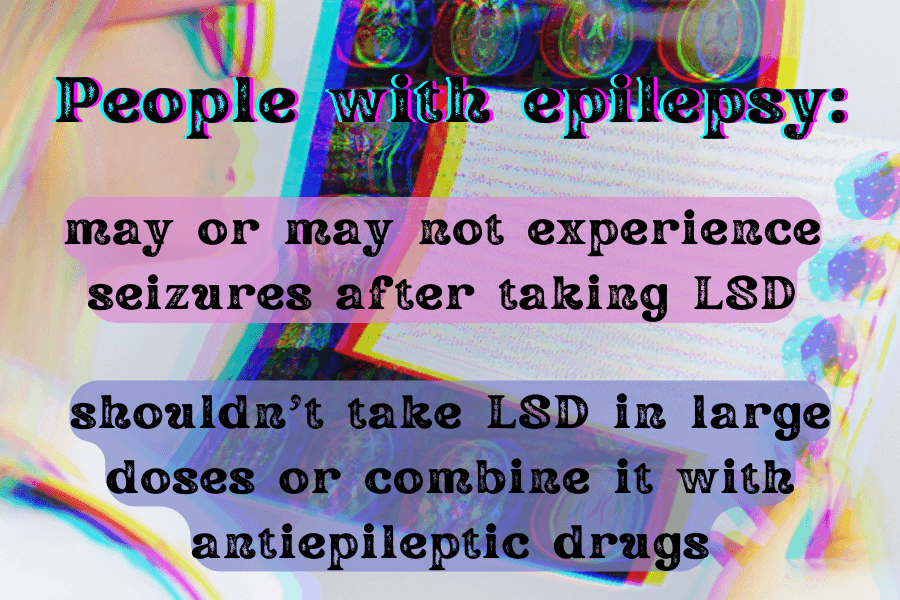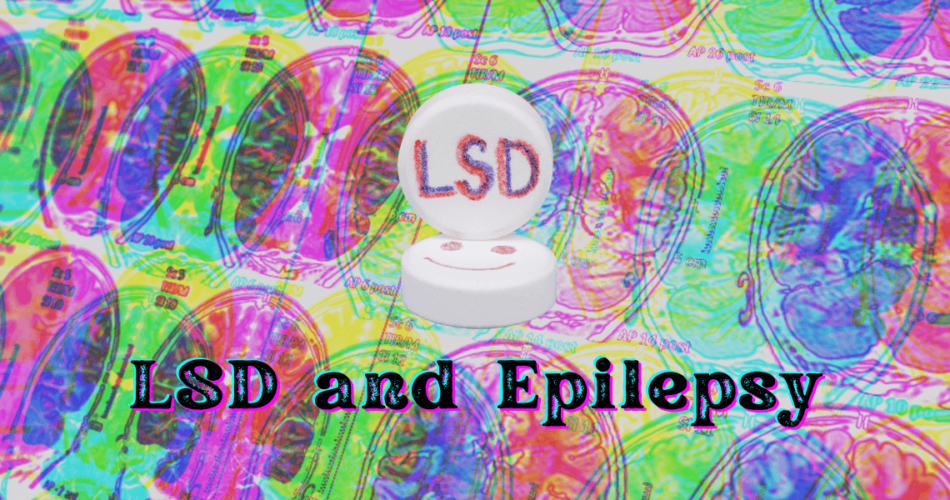Epilepsy is a neurological disorder that affects millions of people around the world. This condition is characterized by seizures, confusion, memory loss and uncontrolled movements. Read this article to learn about the relationship between LSD and epilepsy.
TL;DR
How Does LSD and Epilepsy Affect the Brain?
The temporal lobe is the part of the brain that is most affected by epileptic seizures, and this is also where LSD acts. When taken in small doses, LSD can cause mental stimulation and intense pleasure. It can also lead to increased energy levels, altered perceptions or feelings of detachment from reality. But what about LSD and epilepsy?
In some cases, LSD-25 has been used to study the brains of people with temporal lobe epilepsy using EEG. But can LSD trigger epilepsy? This is a question that’s been asked by a lot of people who experience seizures.
Editor’s Note ✏️
If you came here thinking about whether LSD could treat epilepsy, you might be thinking of weed. Medical cannabis strains that are rich in CBD have been shown to reduce seizures in epileptic patients. Still, it’s not an option that everyone should pursue – always consult with your doctor first.
Does Acid Tripping Cause Epilepsy?
People who take LSD can have various experiences, both good or bad. But it’s not known if LSD itself can cause epilepsy. There’s a case report showing that newer hallucinogens, such as ecstasy and synthetic cannabinoids, can induce seizures. This doesn’t seem to be true about classic hallucinogens like LSD and psilocybin.
LSD And Epilepsy – Conclusion
So, what do we know about trying LSD and epilepsy? One study showed the effects of LSD-25 on patients’ scalp EEGs versus those without the drug, and found that it generally didn’t produce changes in amplitude or frequency. However, people with a history of drug use or epilepsy may be at risk if they take LSD in large doses.
The human brain’s activity and LSD’s potential in treating or diagnosing health conditions is still not well understood. More tests and research is needed to confirm the link between LSD and epilepsy. However, there are numerous side effects that psychedelics like LSD or mushrooms can potentially cause, including severe anxiety, scary thoughts and some medical conditions.

Remember that LSD is an illegal substance, so it’s crucial to be aware of the potential risks and side effects before trying it. Even a minor form of epilepsy may have bad consequences in combination with LSD. If you have any concerns regarding health problems, medications or treatment, be sure to talk to your doctor.
FAQs About Epilepsy and Acid Trips
Is There a Relationship Between Epilepsy and LSD?
Yes, there is a potential relationship between epilepsy and acid. Research suggests that people with a family history of epilepsy may be at a higher risk of having a seizure after taking LSD. If you’ve been diagnosed with epilepsy, the risk is real, even if small.
What Are the Risks of Taking LSD If You Have Epilepsy?
Taking psychedelic drugs like LSD can pose a heightened risk for people with epilepsy, and those considering using these substances should consult their doctor first. The potential danger involved is real – seizure episodes may be the price of taking this journey into altered states.
What Are the Long-Term Effects of Taking LSD If You Have Epilepsy?
Substance use can pose dangerous risks to those with existing conditions, and taking LSD when living with epilepsy is no exception. While the exact long-term consequences are still unknown, it’s possible that its ingestion could provoke seizures in vulnerable individuals over time.
Similar Posts:
- Shrooms and Epilepsy: How Magic Mushrooms Affect Seizures
- Can LSD Cause Seizures? The Risks of the Use of LSD
- LSD Toxicity: Is Lysergic Acid Diethylamide Toxic?
- LSD and Bipolar Disorder: How Psychedelics Affect Mental Health
- LSD While Pregnant – Is Drug Use During Pregnancy Safe?
- Side Effects of Shrooms: Are Magic Mushrooms & Psilocybin Safe?
- Does LSD Kill Brain Cells or Fry Your Brain? Long-Term Effects of LSD




